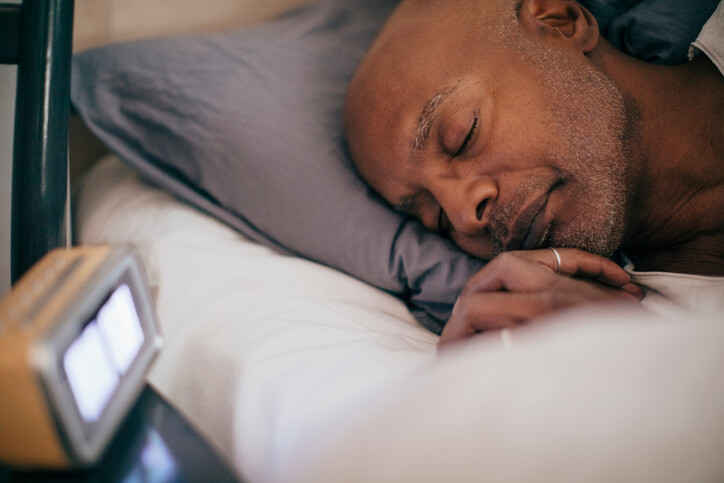Tune in to the latest HealthTalks NOW Podcast
We’re discussing the 4 most common sleep disorders
Listen Now
Depression affects millions of people and depression and sleep issues can go hand-in-hand. Of the more than 16 million people who suffer from depression, over 75% have some form of a sleep disorder. Here we’ll discuss the complex relationship between sleep and depression.
Depression and sleep are connected in interesting ways. Depression symptoms can affect your sleep, and sleep disorder symptoms like sleep apnea or insomnia can lead to depression. Learn more about various forms of depression, such as Major Depressive Disorder and Persistent Depressive Disorder.
It’s well known that insomnia is a common symptom of depression, but research increasingly shows that the connection between depression and insomnia is a two-way street. A 1997 study found that insomnia and hypersomnia were connected to a higher rate of suicidal thoughts and behaviors. Insomnia increases your risk of developing depression by 10 times. A 2006 study of nearly 25,000 people drew a clear link between depression and getting too little sleep (less than six hours), as well as too much sleep (more than eight hours).
Sleep apnea is also linked to depression. A 2003 Study of nearly 19,000 participants found that depression increased the risk of developing a sleep disorder with breathing symptoms by five times. A review in 2009 noted that anywhere from 21-41% of people being treated for sleep apnea also showed depression symptoms. Symptoms of sleep apnea include:
If you’re dealing with depression and are experiencing sleep problems, here are some things you can do to help get a better night’s sleep:
We’re discussing the 4 most common sleep disorders
Listen NowIf you’re suffering from depression or sleep problems, it’s important to seek professional help if you’re experiencing one or more of the following symptoms:
Getting a good night’s sleep is an important step towards dealing with your depression. Learn more about sleep disorders such as insomnia and sleep apnea from Baptist Health.